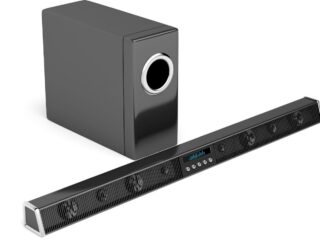
In the United States, tipped employees are those who earn a significant portion of their income from tips left by customers. Tipped employees can be found in a variety of industries, including restaurants, bars, hotels, and hair salons. While federal law requires all employers to pay their workers at least the minimum wage, employers are allowed to credit a certain amount of tips towards this requirement. The current federal minimum wage is $7.25 per hour, but employers can credit up to $5.12 per hour in tips towards this wage. This means that, in theory, an employer could pay a tipped employee as little as $2.13 per hour.
Minimum wage is not a living wage
The minimum wage is the lowest hourly wage that an employer can legally pay their workers. The current federal minimum wage is $7.25 per hour, but many states have their own laws governing the minimum wage. In some states, the minimum wage is higher than the federal rate, while in others it is lower. While the minimum wage is meant to ensure that workers are paid a fair wage, it is not necessarily a living wage.
This is because the cost of living varies greatly from one place to another, and the minimum wage may not be enough to cover basic expenses in some areas. For example, someone working full-time at the federal minimum wage would earn $15,080 per year. In many parts of the country, this would not be enough to cover basic expenses such as rent, food, and transportation.
There are a variety of ways to calculate a living wage, but one common method is to use the “Self-Sufficiency Standard.” This standard estimates the hourly wage a single adult needs to earn to cover basic expenses, without assistance from public benefits or subsidies. According to the Self-Sufficiency Standard, the hourly wage needed to cover basic expenses varies greatly from one state to another. For example, in Mississippi, the hourly wage needed is $7.35, while in Hawaii it is $20.00.
Tipped employees make more than minimum wage
In practice, however, tipped employees usually earn significantly more than the minimum wage. This is because most customers do tip, and the tips received by employees typically exceed the amount that the employer is allowed to credit. For example, a waitress in a busy restaurant may receive $20 or more in tips during her shift, which would more than make up for any wage shortfall.
In addition, many states have their own laws governing the wages of tipped employees. In some states, the employer is required to pay a “tipped minimum wage” that is higher than the federal minimum wage. In other states, the employer is allowed to credit tips towards the minimum wage, but only up to a certain amount. For example, in California, the employer can credit up to $1.00 per hour in tips towards the minimum wage, which is currently $10.50 per hour.
Do you tip on tax
No, you are not required to tip on tax. However, if you do choose to leave a tip, it is generally considered good etiquette to tip on the pre-tax amount. For example, if your bill is $100 and the tax rate is 10%, you would tip on $90 (the pre-tax amount). While there is no hard and fast rule about tipping on tax, it is generally considered good etiquette to do so. Tipping on the pre-tax amount shows that you are aware of the tax rate and do not want the server to be shortchanged. Additionally, tips are often pooled among servers, so tipping on the pre-tax amount ensures that each server receives an equal share of the tip.
Tips are a form of income, not a gratuity
It is important to remember that tips are a form of income, not a gratuity. This means that tips are subject to income taxes, and employers are required to report them to the IRS. Additionally, tipped employees are entitled to all of the same rights and protections as other workers, including minimum wage laws and overtime pay. If you have any questions about your rights as a tipped employee, you should contact your state labor department or an attorney.
Tips should be given based on quality of service, not just because the employee is working for minimum wage
While it is important to remember that tipped employees are entitled to all of the same rights and protections as other workers, tips should still be given based on quality of service. For example, if you receive exceptional service from a waiter or waitress, you may want to leave a larger tip than you would normally. However, if you feel that the service was poor, you are not required to leave a tip.
In summary
Do you tip on tax? No, you are not required to tip on tax. However, if you do choose to leave a tip, it is generally considered good etiquette to tip on the pre-tax amount. While there is no hard and fast rule about tipping on tax, it is generally considered good etiquette to do so. Tipping on the pre-tax amount shows that you are aware of the tax rate and do not want the server to be shortchanged.
Additionally, tips are often pooled among servers, so tipping on the pre-tax amount ensures that each server receives an equal share of the tip. Remember, tips are a form of income, not a gratuity, and should be given based on quality of service. If you have any questions about your rights as a tipped employee, you should contact your state labor department or an attorney.










